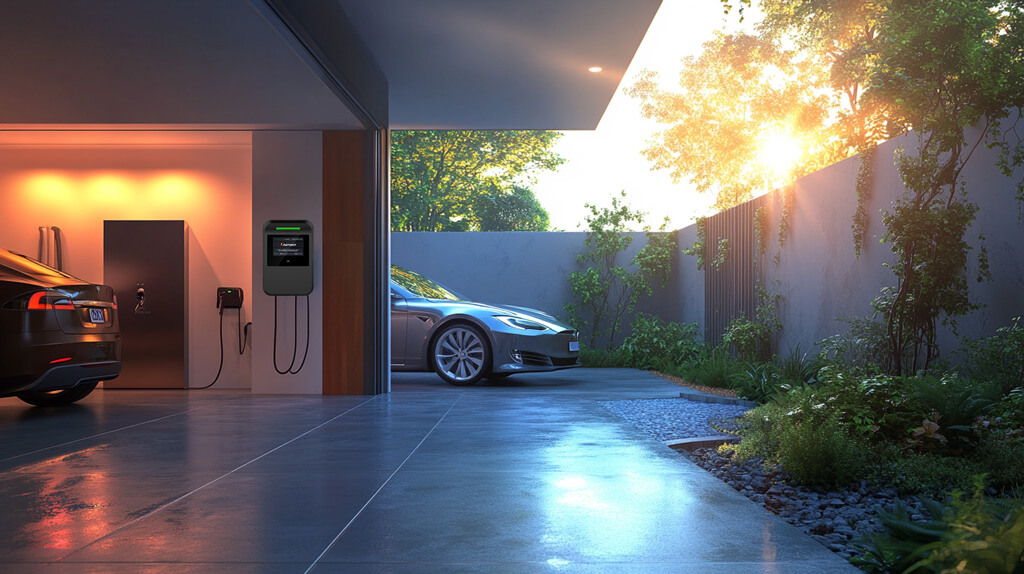The Allure and Challenges of DC Fast Charger For Home
With the rise of electric vehicles (EVs), more homeowners are exploring efficient charging options. DC fast chargers stand out for their ability to charge EVs in a fraction of the time—often under 30 minutes at public stations. But when it comes to residential settings, a key question arises: "Can I install a DC fast charging at home?"
This question may seem straightforward, but it involves technical feasibility, cost considerations, and regulatory hurdles. In this article, we’ll provide a detailed analysis, backed by authoritative data and expert insights, to explore the possibility of installing a DC fast charging at home and guide you toward the best charging solution.
What Is a DC Fast Charger?
A DC fast charger (Direct Current Fast Charger) is a high-power device that delivers direct current to an EV’s battery, enabling rapid charging. Unlike the typical Level 2 AC chargers found in homes (offering 7-22 kW),DC Quick Charger range from 50 kW to 350 kW, drastically cutting charging times. For instance, Tesla Superchargers can add hundreds of miles of range in just 15-30 minutes.
Per the U.S. Department of Energy (DOE) in 2023, the U.S. boasts over 50,000 public High-Power DC Charger , with numbers climbing fast. Yet, these chargers are rarely seen in homes. What’s holding them back? Let’s break it down across technical, cost, and regulatory dimensions.
Feasibility of Installing home DC fast charger
1. Technical Challenges
• Power Load:Rapid DC Charger demand substantial electricity. Most homes have 100-200 amp systems, but a 50 kW Ultra-Fast DC Charger might require 400 amps or more. This could mean overhauling your electrical setup—new transformers, thicker cables, and updated panels.
• Space Requirements: Unlike compact Level 2 chargers,DC Express Charger are larger and need cooling systems. Finding space in a garage or yard, with proper ventilation, is a key concern.
• Compatibility: Not all EVs support fast charging, and charging protocols (e.g., CHAdeMO, CCS) vary by brand and model. Picking the right charger is critical.
2. Cost Realities
• Equipment Cost: A home DC Speed Charger typically costs $5,000 to $15,000, compared to $500 to $2,000 for a Level 2 charger—a stark difference.
• Installation Cost: Upgrading your electrical system and hiring professionals can add $20,000 to $50,000, depending on your home’s infrastructure.
• Operational Cost: High-power charging spikes electricity bills, especially during peak hours. Without smart energy management, long-term costs could soar.
3. Regulatory and Safety Constraints
• Building Codes: In the U.S., installing a DC fast charger must meet National Electrical Code (NEC) standards, like Article 625, which governs high-power equipment safety.
• Approval Process: You’ll need permits from local authorities and utility companies to ensure your system can handle the load—often a lengthy and costly process.
• Insurance Considerations: High-power equipment might affect your home insurance, with some providers raising premiums or requiring extra safety measures.
3. Regulatory and Safety Constraints
• Approval Process: You’ll need permits from local authorities and utility companies to ensure your system can handle the load—often a lengthy and costly process.
• Insurance Considerations: High-power equipment might affect your home insurance, with some providers raising premiums or requiring extra safety measures.
Why Level 2 Chargers Dominate Homes?
Despite the speed of Home DC Charger, most households opt for Level 2 chargers. Here’s why:
• Cost-Effectiveness: Level 2 chargers are affordable to buy and install, meeting daily driving needs without breaking the bank.
• Moderate Power Load: Requiring just 30-50 amps, they fit most home systems without major upgrades.
• Reasonable Charging Time: For most owners, 4-8 hours of overnight charging suffices—no need for ultra-fast charging.
BloombergNEF’s 2023 report shows Level 2 chargers hold over 90% of the global home charging market, while DC Turbo Charger thrive in commercial and public spaces. For homes, practicality often trumps speed.
Special Scenarios: Where DC Fast Chargers Shine
Though challenging, Install dc fast charger at home may appeal in specific cases:
• Multi-EV Households: If you own multiple EVs needing frequent charging, a DC Swift Charger boosts efficiency.
• Small Business Use: For home-based EV rentals or ride-sharing, rapid charging improves vehicle turnover.
• Future-Proof Infrastructure: As grids modernize and sustainable energy options (like solar and batteries) grow, homes may better support high-power charging.
Even so, steep upfront costs and installation complexity remain hurdles.
Linkpower Tips: Choosing Your Home Charging Solution
Before jumping into a DC fast charger, weigh these factors:
• Define Your Needs: Assess your daily mileage and charging habits. If overnight charging works, a Level 2 charger may suffice.
• Get Professional Input: Consult electrical engineers or providers like LinkPower to evaluate your home’s power capacity and upgrade costs.
• Check Policies: Some regions offer home charger incentives, though usually for Level 1 or 2—not DC fast chargers.
• Look Ahead: With smart grids and energy management tech advancing, future homes may handle high-power charging more easily.
The Reality and Future of Home DC Fast Charging
So, "Can I install a DC fast charger at home?" Yes, it’s technically possible—but practically challenging. High installation costs, demanding power loads, and strict regulatory requirements make DC fast chargers better suited for commercial use than homes. For most EV owners, Level 2 chargers offer a cost-effective, practical solution.
Yet, as the EV market expands and home energy management evolves, the feasibility of home DC Hyper Charger may rise. As a leader in charging solutions, LinkPower is here to deliver efficient, innovative options to meet your future needs seamlessly.
Why Choose LinkPower?
As a top EV charging factory, LinkPower offers unmatched value:
• Innovative Technology: Cutting-edge DC fast chargers and Level 2 options for all scenarios.
• Custom Designs: Tailored solutions for your home or business.
• Cost Optimization: High performance at an affordable price for maximum ROI.
• Global Support: Worldwide technical and after-sales service for reliable operation.
Contact LinkPower today to explore home and commercial charging solutions and step into a sustainable future with us!
Post time: Apr-01-2025




